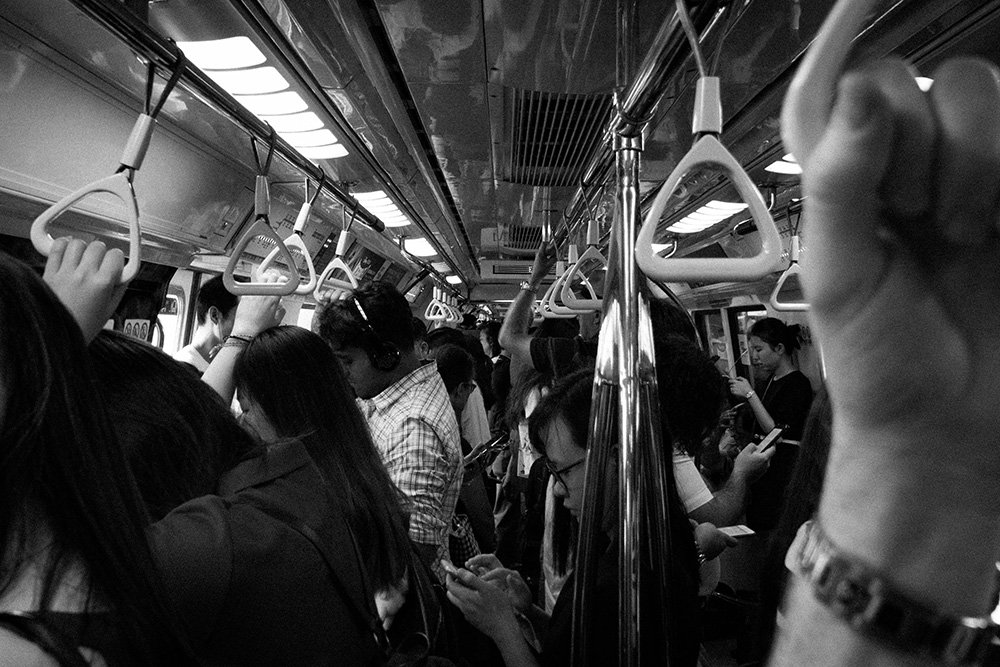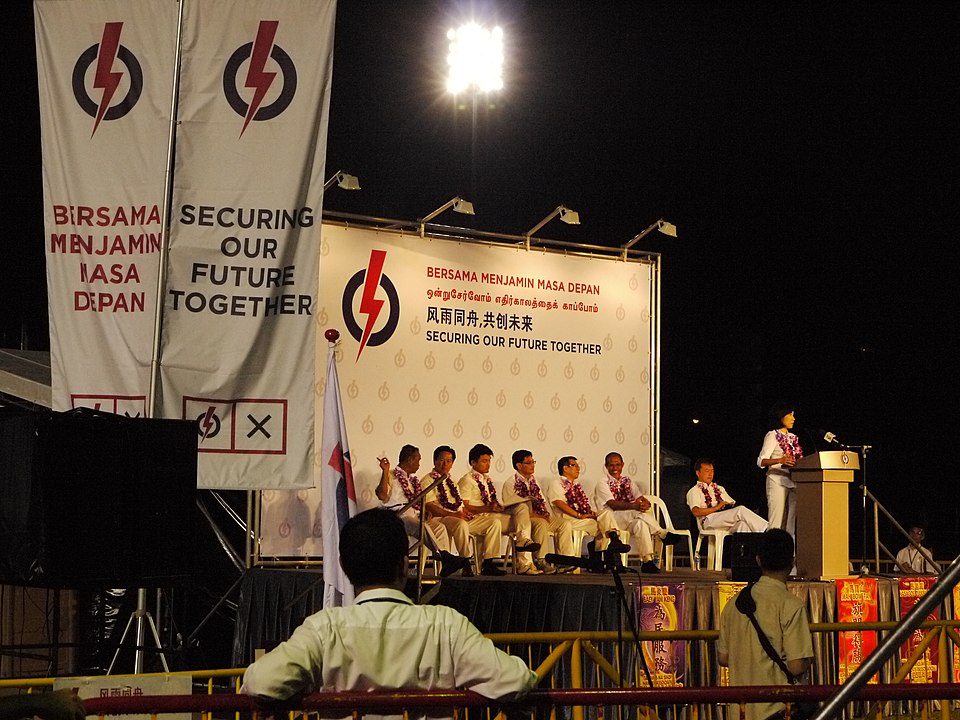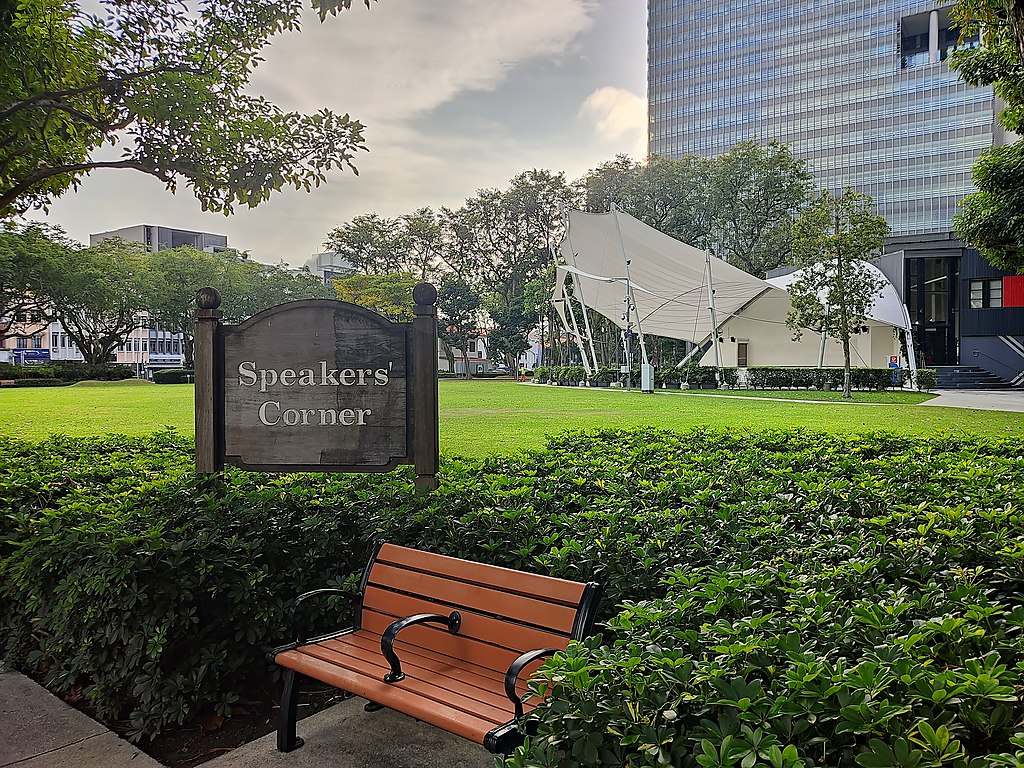
The Problem of Political Disengagement
The growth of social media platforms has facilitated political engagement for the citizenry and eased the cost of participation for millions of citizens (Ahmed & Madrid-Morales, 2020; Gil de Zúñiga et al., 2012; 2014). However, many remain politically apathetic and disengage from active participation (Ahmed & Gil-Lopez, 2022; Zhelnina, 2020). Political apathy is a lack of interest in politics, including political information and activities, such as participating in public events and voting in elections. Political scientists consider it a social problem (Dean, 1965; Rosenberg, 1954). A politically active citizenry is critical for a well-functioning political system, as such a thriving democracy depends on the degree of citizen involvement in everyday politics and elections. Furthermore, “skewed participation leads to skewed government action” (Griffin & Newman, 2005; p. 1206). However, many recent studies have reported a politically apathetic culture in many democracies (Manning & Holmes, 2013; Henn et al., 2007; Pontes et al., 2017; Zhang, 2022). In such cases, democracy will gradually become less representative of all citizens’ views, which is increasingly likely as the political engagement gaps widen between the politically active and inactive citizenry (Griffin & Newman, 2005; Hansford & Gomez, 2010). Therefore, it is necessary to attempt to reverse or, at the very least, decelerate this trend; otherwise, biases in political engagement will produce a biased representation of the populace, creating partisan outcome preferences (Griffin & Newman, 2005; Manning & Holmes, 2013).

Who Remains Politically Disengaged
Empirical evidence shows that age and gender are often associated with political apathy, suggesting that the younger (Henn et al., 2007; Snell, 2010; Zhang, 2022) and female segments of the population are more likely to be politically apathetic (Abendschön & García-Albacete, 2021; Vochocová et al., 2015). In other words, politically apathetic citizens are disproportionately young and female citizens. It is a grave concern as, simultaneously, there is a growing share of the eligible young electorate in our societies. Moreover, the lack of female engagement in politics further widens the gender-political engagement gap reported across many societies worldwide (Abendschön & García-Albacete, 2021; Ahmed & Madrid-Morales, 2020; Vochocová et al., 2015).
Regarding political engagement, offline political activities generally have higher transaction costs than online ones. That is why the former may not be compelling to most citizens, while the latter may be, especially given the growing internet and social media penetration. Simply put, people greatly benefit from abundant opportunities for interaction offered by the internet and social media. The frictionless online information and communication possibilities can foster political engagement and attract politically apathetic citizens. Various online political activities are now readily available at the touch of a screen, with positive socio-political implications ( Gil de Zúñiga et al., 2012; Jost et al., 2018). While it is essential to recognize the importance of offline political participation, such as attending a protest, online political participation also has fundamental value in and of itself. For instance, contacting and connecting with a constituency’s politicians and political offices has never been such convenient now than before (Keaveney, 2015).
The Role of Fear of Missing Out
Scholars have long argued about which factors can facilitate the disengaged citizenry into active politics. For example, the fear of missing out (FOMO), a critical psychological experience, can be associated with online political engagement – especially among the politically disengaged citizenry. According to Przybylski et al. (2013), FOMO is “a pervasive apprehension that others might be having rewarding experiences from which one is absent” (p. 1841), and which leads to the desire to always be in touch with what other people are doing. This feeling drives excessive use of social media to stay connected with other people to be informed about and participate in different social activities (Przybylski et al., 2013). Recent meta-analyses of FOMO and social media use shows a robust relationship between the mentioned (Fioravanti et al., 2021; Tandon et al., 2021). More specifically, Przybylski et al. (2013) show that “FOMO is associated with higher levels of behavioral engagement with social media” (p. 1847).
Based on this background, it stands to reason that people with high FOMO levels are more likely to participate in various political activities online, such as having political conversations with others, supporting political causes, and participating in political events. The mechanism can be explained by the natural tendency of people with high levels of FOMO to closely monitor (and engage in) political topics and events in their networks so they do not miss any possible social activities (Skoric et al., 2018). In sum, although people engage in political activities for different motivations, one central motivation could be FOMO driving their engagement. Indeed, some prior research works have indicated the relationship between FOMO and specific online political activities (Ahmed, 2022; Skoric et al., 2018). However, the direct relationship has not been the focus of the literature. Moreover, evidence shows that age and gender are especially co-related with FOMO (Rozgonjuk et al., 2021; Przybylski et al., 2013). Therefore, the interaction of age, gender, and FOMO would be critical in explaining online political engagement.

The Case of Singapore
We test our assumptions in the context of Singapore – a country with high internet and social media penetration. Political apathy in Singapore is one of the highest in the world (Key, 2021; Ong, 2021). Previous evidence suggests that most Singaporeans refrain from even low-cost political participation, such as signing a petition (Caplan, 2008). A report found that most Singaporeans are politically apathetic, such that nearly 4 out of 10 respondents never discuss politics with their friends, more than half discuss it occasionally, and only 7.1% discuss it frequently (Ong, 2021). The number of disengaged Singaporeans across political actions is high – Singaporeans overwhelmingly do not join a boycott (79.1%), a peaceful demonstration (74.2%), an unofficial strike (88%), nor organize any political activities (90%) (Ong, 2021). Unsurprisingly, the society ranks among the lower end of civic engagement levels compared to other Western societies. More recent evidence also confirms that politically disengaged citizens in Singapore do not utilize social media for participation purposes and are negatively affected by news exposure on social media (Ahmed & Gil-Lopez, 2022). Others have shown that less attention to political news drives political apathy in some Singaporeans (Zhang, 2022). Here, we argue for the need to look beyond traditional factors and explore other psychological factors that can engage politically apathetic citizens.
We examine the relationship between FOMO and online political engagement and how this relationship be moderated by age and gender. Based on the above brief discussion, we hypothesized that FOMO would be positively associated with political discussions on social media, which would be related to online political engagement. We also tested if this mechanism is consistent across all Singaporeans or if the relationships differ across age and gender groups.

FOMO is Associated with Political Discussion and Participation
We conducted an online survey in Singapore using a survey panel agency. The participants in the survey answered questions regarding their demographics, media use habits, social media news consumption, FOMO, and political behavior. We then used the survey data to conduct regression analyses, testing our assumptions.
Our analyses suggest that FOMO is positively associated with political discussion and online political participation. Furthermore, political discussions on social media also mediated the relationship between FOMO and online political participation. Overall, the results suggest that people with higher FOMO levels frequently engage in political discussion and activities online in Singapore. Here, such political discussions also act as a catalyst for online political participation.
Further, we also find that this mechanism is moderated by both age and gender, suggesting that the relationship is stronger for younger citizens and female Singaporeans – with the strongest effects of FOMO being observed for young females.
Conclusion
Many have long questioned the solution to political apathy. While we do not offer conclusive solutions, we show that FOMO can be a critical factor in engaging politically apathetic groups. In our case, we find evidence to support the thesis that FOMO can drive political discussion and participation among disengaged citizens – most substantially for younger females in Singapore. While some refer to online political engagement as clicktivism (also known as slacktivism), arguing that such online activities do not translate to offline actions and do not result in substantial social or political changes in real life (e.g., Christensen, 2011; Hindman, 2009; Shulman, 2004). In other words, they argue whether online political activities, which take just a keyboard and a mouse click, are politically legitimate and meaningful civic actions (Harlow & Guo, 2014).
However, we argue that at the bare minimum online political engagement, such as online political discussion and participation, would increase citizens’ political awareness and knowledge, which are beneficial for polity and fundamentals of democratic citizenship, ultimately encouraging offline political engagement in the long term. Several prior studies have shown the substantial potential of online political activities (e.g., Halupka, 2014, 2017; Karpf, 2010). Specifically, some evidence supports that online political activities are associated with offline political actions in Singapore (Skoric & Zhu, 2015). Overall, online political engagement manifests the political expression of citizen, it is a reliable indicator of to what extent the populace is politically active, and it has substantial potential to translate into offline political engagement. Furthermore, beyond the adverse effects of FOMO found in the literature (Blackwell et al., 2017; Yin et al., 2021), we observe some value in how it can drive the politically disengaged citizenry in Singapore.
Saifuddin Ahmed
Nanyang Technological University, Singapore
Muhammad Masood
City University of Hong Kong
References
Abendschön, S., & García-Albacete, G. (2021). It’s a man’s (online) world. Personality traits and the gender gap in online political discussion. Information, Communication & Society, 24(14), 2054–2074. https://doi.org/10.1080/1369118x.2021.1962944
Ahmed, S. (2022). Disinformation sharing thrives with fear of missing out among low cognitive news users: A cross-national examination of intentional sharing of deep fakes. Journal of Broadcasting & Electronic Media, 66(1), 89–109. https://doi.org/10.1080/08838151.2022.2034826
Ahmed, S., & Gil-Lopez, T. (2022). Incidental news exposure on social media and political participation gaps: Unraveling the role of education and social networks. Telematics and Informatics, 68, 101764.
Ahmed, S., & Madrid-Morales, D. (2020). Is it still a man’s world? Social media news use and gender inequality in online political engagement. Information, Communication & Society, 24(3), 381–399. https://doi.org/10.1080/1369118x.2020.1851387
Blackwell, D., Leaman, C., Tramposch, R., Osborne, C., & Liss, M. (2017). Extraversion, neuroticism, attachment style and fear of missing out as predictors of social media use and addiction. Personality and Individual Differences, 116, 69-72.
Christensen, H. S. (2011). Political activities on the Internet: Slacktivism or political participation by other means?. First Monday, 16(2). https://doi.org/10.5210/fm.v16i2.3336
Dean, D. G. (1965). Powerlessness and political apathy. Social Science, 40(4), 208–213. http://www.jstor.org/stable/41885108
Fioravanti, G., Casale, S., Benucci, S. B., Prostamo, A., Falone, A., Ricca, V., & Rotella, F. (2021). Fear of missing out and social networking sites use and abuse: A meta-analysis. Computers in Human Behavior, 122, 106839. https://doi.org/10.1016/j.chb.2021.106839
Gil de Zúñiga, H., Jung, N., & Valenzuela, S. (2012). Social media use for news and individuals’ social capital, civic engagement and political participation. Journal of Computer-Mediated Communication, 17(3), 319–336. https://doi.org/10.1111/j.1083-6101.2012.01574.x
Gil de Zúñiga, H., Molyneux, L., & Zheng, P. (2014). Social media, political expression, and political participation: Panel analysis of lagged and concurrent relationships. Journal of communication, 64(4), 612-634.
Griffin, J. D., & Newman, B. (2005). Are voters better represented? The Journal of Politics, 67(4), 1206–1227. https://doi.org/10.1111/j.1468-2508.2005.00357.x
Halupka, M. (2014). Clicktivism: A systematic heuristic. Policy & Internet, 6(2), 115–132. https://doi.org/10.1002/1944-2866.poi355
Halupka, M. (2017). The legitimisation of clicktivism. Australian Journal of Political Science, 53(1), 130–141. https://doi.org/10.1080/10361146.2017.1416586
Hansford, T. G., & Gomez, B. T. (2010). Estimating the electoral effects of voter turnout. American Political Science Review, 104(2), 268–288. https://doi.org/10.1017/s0003055410000109
Harlow, S., & Guo, L. (2014). Will the revolution be tweeted or facebooked? Using digital communication tools in immigrant activism. Journal of Computer-Mediated Communication, 19(3), 463–478. https://doi.org/10.1111/jcc4.12062
Henn, M., Weinstein, M., & Hodgkinson, S. (2007). Social capital and political participation: Understanding the dynamics of young people’s political disengagement in contemporary Britain. Social Policy and Society, 6(4), 467–479. https://doi.org/10.1017/s1474746407003818
Hindman, M. (2009). The myth of digital democracy. Oxford: Princeton University Press.
Jost, J. T., Barberá, P., Bonneau, R., Langer, M., Metzger, M., Nagler, J., Sterling, J., & Tucker, J. A. (2018). How social media facilitates political protest: information, motivation, and social networks. Political Psychology, 39, 85–118. https://doi.org/10.1111/pops.12478
Karpf, D. (2010). Online political mobilization from the advocacy group’s perspective: Looking beyond clicktivism. Policy & Internet, 2(4), 7–41. https://doi.org/10.2202/1944-2866.1098
Keaveney, P. (2015). Online lobbying of political candidates. In Frame, A., & Brachotte, G. (Eds.), Citizen participation and political communication in a digital world (pp. 220-234). Routledge. https://doi.org/10.4324/9781315677569-21
Key, T. K. (2021, April 21). Are Singaporeans really politically apathetic?. Institute of Policy Studies. https://lkyspp.nus.edu.sg/ips/publications/details/are-singaporeans-really-politically-apathetic
Manning, N., & Holmes, M. (2013). ‘He’s snooty ‘im’: Exploring ‘white working class’ political disengagement. Citizenship Studies, 17(3–4), 479–490. https://doi.org/10.1080/13621025.2013.793082
Ong, J. (2021, July 2). Most Singaporeans politically apathetic, not keen on activism: IPS. The Straits Times. https://www.straitstimes.com/singapore/most-singaporeans-politically-apathetic-not-keen-on-activism-ips
Pontes, A. I., Henn, M., & Griffiths, M. D. (2017). Youth political (dis)engagement and the need for citizenship education: Encouraging young people’s civic and political participation through the curriculum. Education, Citizenship and Social Justice, 14(1), 3–21. https://doi.org/10.1177/1746197917734542
Przybylski, A. K., Murayama, K., DeHaan, C. R., & Gladwell, V. (2013). Motivational, emotional, and behavioral correlates of fear of missing out. Computers in Human Behavior, 29(4), 1841–1848. https://doi.org/10.1016/j.chb.2013.02.014
Rosenberg, M. (1954). Some determinants of political apathy. Public Opinion Quarterly, 18(4), 349. https://doi.org/10.1086/266528
Rosenberg, M. (1954). Some determinants of political apathy. The Public Opinion Quarterly, 18(4), 349–366. http://www.jstor.org/stable/2745968
Rozgonjuk, D., Sindermann, C., Elhai, J. D., & Montag, C. (2021). Individual differences in Fear of Missing Out (FoMO): Age, gender, and the Big Five personality trait domains, facets, and items. Personality and Individual Differences, 171, 110546.
Shulman, S. W. (2004). The internet still might (but probably won’t) change everything: Stakeholder views on the future of electronic rulemaking. I/S: A Journal of Law and Policy for the Information and Society, 1 (1), 111-145
Skoric, M. M., & Zhu, Q. (2015). Social media and offline political participation: Uncovering the paths from digital to physical. International Journal of Public Opinion Research, 28(3), 415–427. https://doi.org/10.1093/ijpor/edv027
Skoric, M. M., Zhu, Q., & Lin, J. H. T. (2018). What predicts selective avoidance on social media? A study of political unfriending in Hong Kong and Taiwan. American Behavioral Scientist, 62(8), 1097–1115. https://doi.org/10.1177/0002764218764251
Snell, P. (2010). Emerging adult civic and political disengagement: a longitudinal analysis of lack of involvement with politics. Journal of Adolescent Research, 25(2), 258–287. https://doi.org/10.1177/0743558409357238
Tandon, A., Dhir, A., Almugren, I., AlNemer, G. N., & Mäntymäki, M. (2021). Fear of missing out (FoMO) among social media users: A systematic literature review, synthesis and framework for future research. Internet Research, 31(3), 782–821. https://doi.org/10.1108/intr-11-2019-0455
Vochocová, L., Štětka, V., & Mazák, J. (2015). Good girls don’t comment on politics? Gendered character of online political participation in the Czech Republic. Information, Communication & Society, 19(10), 1321–1339. https://doi.org/10.1080/1369118x.2015.1088881
Yin, L., Wang, P., Nie, J., Guo, J., Feng, J., & Lei, L. (2021). Social networking sites addiction and FoMO: The mediating role of envy and the moderating role of need to belong. Current Psychology, 40(8), 3879-3887.
Zhang, W. (2022). Political disengagement among youth: A comparison between 2011 and 2020. Frontiers in Psychology, 13, 809432. https://doi.org/10.3389/fpsyg.2022.809432
Zhelnina, A. (2020). The apathy syndrome: How we are trained not to care about politics. Social Problems, 67(2), 358-378.
